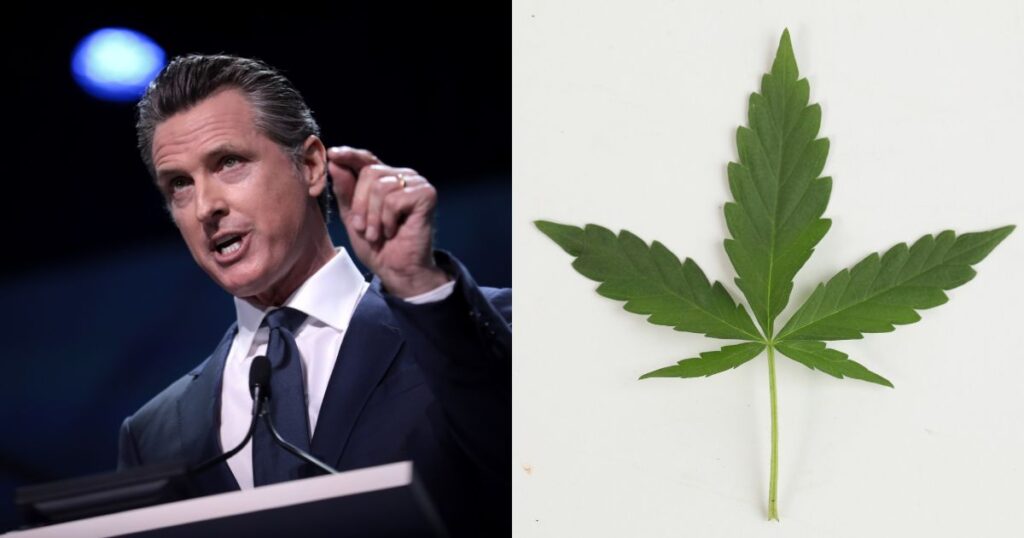California has long been at the forefront of cannabis policy reform, establishing itself as a global leader in the legal marijuana industry. However, recent developments have brought the state into the spotlight for a different reason. Governor Gavin Newsom and his administration are advancing a highly controversial plan to make the emergency ban on hemp-derived THC permanent.
While positioned as a move to enhance public safety and level the playing field for the heavily regulated marijuana industry, this decision could significantly reshape the landscape for hemp businesses, consumers, and even California’s own economy.
The State of the Ban
According to a recent article by SFGate, the California Department of Public Health (CDPH) recently proposed a permanent ban on hemp-derived THC products, including items like vapes and beverages containing intoxicating cannabinoids such as delta-8 and delta-9 THC. The initiative aims to replace the current emergency regulations, which are set to expire in September, with a fixed and far-reaching policy.
Governor Newsom has been vocal about his support for this regulatory shift, citing concerns over public health and minors’ easy access to hemp-derived THC products in mainstream retail settings.
Unlike federally regulated agriculture, the hemp-derived THC industry operates within a hazy regulatory framework, which proponents of the ban argue makes it a potential public safety risk.
But what does this potentially permanent prohibition mean for the hemp sector and California as a whole?
Who Gains and Who Loses?
On one side of the equation, the state’s licensed cannabis industry could stand to benefit from this sweeping prohibition. California’s marijuana businesses have long grappled with high regulatory costs, stringent compliance measures, and steep taxes.
Many marijuana operators argue that unregulated hemp-derived THC products create unfair competition by undercutting costs and selling outside the licensed dispensary system.
By eliminating hemp THC products from the market, state-licensed marijuana businesses may see a shift in consumer demand their way, potentially creating new revenue streams for dispensaries struggling in a saturated market.
However, those in California’s hemp industry argue the economic costs of banning hemp-derived THC could far outweigh these potential gains. According to CDPH projections, a permanent ban would result in over 18,000 job losses and billions of dollars in lost revenue in just five years.
Small businesses, including grocery stores and corner shops that have introduced hemp products to their shelves, face disproportionately large financial impacts. Additionally, the ban will likely push some hemp operators and consumers to the illicit market, introducing a host of enforcement and safety challenges.
Beyond economics, there’s also the human element to consider. Many Californians, including veterans and chronic pain patients, rely on hemp-derived THC products for their affordability and accessibility.
Shifting these consumers to the regulated marijuana market may not be feasible for those unable to meet the higher costs of cannabis products sold in dispensaries.
Drawing a Parallel to Texas
California isn’t the only state wrestling with the complexities of regulating hemp-derived THC. Texas, another prominent actor in the national cannabis conversation, is exploring a similar route through Senate Bill 3.
The proposed legislation in Texas seeks to ban the sale of consumable hemp-based products containing delta-8 and delta-9 THC, but it’s still awaiting Governor Greg Abbott’s final decision.
Advocates in Texas argue that the regulation could help establish a controlled framework and address misuse concerns, particularly regarding minors. Critics, however, emphasize the devastating impact such a policy could have on Texas’ $8 billion hemp industry and the 50,000 Texan jobs it supports.
With many Texans relying on hemp products for medical reasons, these individuals could face restricted access to affordable cannabinoids.
The similarities between California’s and Texas’ approaches are telling, as both states weigh industry pressures against economic and public health priorities. What remains uncertain is whether either state will succeed in striking a balance that meets the needs of both the hemp and regulated marijuana industries without alienating consumers.
Hemp vs. Marijuana: The Regulatory Divide
The heart of the debate often centers on the inequitable regulatory frameworks governing hemp and marijuana products. Licensed marijuana businesses in California are subject to requirements for extensive testing, child-resistant packaging, and labeling standards, as well as excise taxes that make their products significantly pricier.
Hemp-derived products, on the other hand, face far fewer restrictions, with little to no oversight regarding contaminants such as pesticides or molds.
This disparity has fueled resentment among cannabis operators who feel hemmed in by bureaucracy while watching hemp products proliferate in convenience stores at a fraction of the cost.
Whether fair competition or regulatory oversight can be achieved through collaboration rather than prohibition remains one of the central questions in the ongoing discourse.
Consumer Impacts and Future Implications
If California moves forward with its planned ban, consumers are likely to feel the effects almost immediately. Hemp users who turn to these products for affordability and therapeutic benefits may find themselves priced out of the regulated marijuana market or forced to seek unregulated alternatives in the illicit market.
Illicit products, in turn, pose heightened risks of contamination and inaccurate labeling, undermining the very consumer safety goals that the California ban seeks to achieve.
Nationally, California’s stance could influence other states grappling with hemp regulation. States like Oregon and Washington have already implemented tighter controls on intoxicating hemp cannabinoids. If California follows suit with a zero-tolerance model, it could set a precedent for more restrictive hemp policies across the U.S.
The broader cannabis industry may also take lessons from how the state manages its competing market pressures. A significant reduction in hemp products could redistribute consumer behavior, but whether this strengthens or destabilizes California’s cannabis market remains to be seen.
Charting a Path Forward
As the public comment window on the California hemp ban unfolds, a growing chorus of voices from hemp businesses, cannabis operators, and medical patients is calling for compromise.
Many recommend clear labeling, comprehensive testing, and targeted enforcement to address concerns associated with intoxicating hemp without dismantling an entire industry.
Others argue for parity in regulatory standards between the two sectors, allowing both hemp and marijuana businesses to thrive under consistent quality guidelines.
California finds itself at a decisive crossroads. While the state’s marijuana industry may see a glimmer of hope in what it perceives as a fairer market, the cost to hemp businesses and California consumers cannot be underestimated.
Striking the right balance between regulation and innovation is no easy feat, but one thing is certain: decisions made today will shape the cannabis and hemp industries for years to come.















